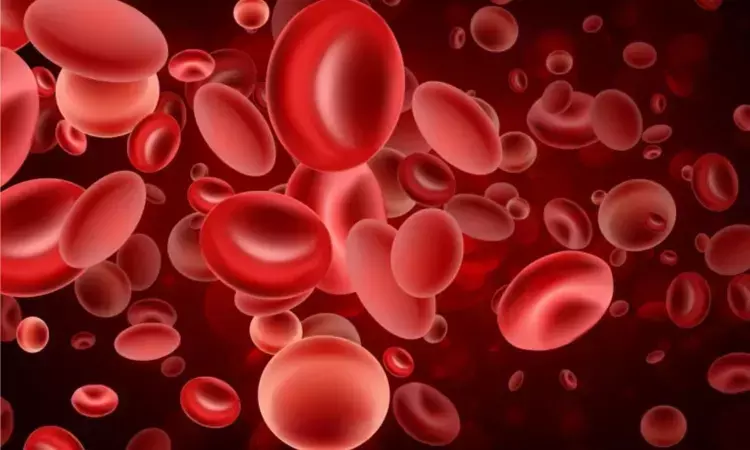- Home
- Medical news & Guidelines
- Anesthesiology
- Cardiology and CTVS
- Critical Care
- Dentistry
- Dermatology
- Diabetes and Endocrinology
- ENT
- Gastroenterology
- Medicine
- Nephrology
- Neurology
- Obstretics-Gynaecology
- Oncology
- Ophthalmology
- Orthopaedics
- Pediatrics-Neonatology
- Psychiatry
- Pulmonology
- Radiology
- Surgery
- Urology
- Laboratory Medicine
- Diet
- Nursing
- Paramedical
- Physiotherapy
- Health news
- Fact Check
- Bone Health Fact Check
- Brain Health Fact Check
- Cancer Related Fact Check
- Child Care Fact Check
- Dental and oral health fact check
- Diabetes and metabolic health fact check
- Diet and Nutrition Fact Check
- Eye and ENT Care Fact Check
- Fitness fact check
- Gut health fact check
- Heart health fact check
- Kidney health fact check
- Medical education fact check
- Men's health fact check
- Respiratory fact check
- Skin and hair care fact check
- Vaccine and Immunization fact check
- Women's health fact check
- AYUSH
- State News
- Andaman and Nicobar Islands
- Andhra Pradesh
- Arunachal Pradesh
- Assam
- Bihar
- Chandigarh
- Chattisgarh
- Dadra and Nagar Haveli
- Daman and Diu
- Delhi
- Goa
- Gujarat
- Haryana
- Himachal Pradesh
- Jammu & Kashmir
- Jharkhand
- Karnataka
- Kerala
- Ladakh
- Lakshadweep
- Madhya Pradesh
- Maharashtra
- Manipur
- Meghalaya
- Mizoram
- Nagaland
- Odisha
- Puducherry
- Punjab
- Rajasthan
- Sikkim
- Tamil Nadu
- Telangana
- Tripura
- Uttar Pradesh
- Uttrakhand
- West Bengal
- Medical Education
- Industry
Parenteral iron followed by oral iron effective strategy for treating HFpEF: Study

Mumbai, Maharashtra: Parenteral iron carboxymaltose followed by oral iron supplementation is an effective treatment strategy in patients with heart failure, especially in heart failure with preserved ejection fraction (HFpEF), finds a recent study. NYHA status and functional status appear to be the time-tested markers for iron repletion. In heart failure patients including those with HFpEF, iron deficiency is a major risk factor and prevails in the younger Indian population. The study appears in the Journal of the Association of Physicians of India (JAPI).
Malav Darshan Jhala, Assistant Professor, Seth GS Medical College and KEM Hospital, Mumbai, Maharashtra, and colleagues aimed to assess the prevalence of iron deficiency and impact of parenteral iron therapy in patients with symptomatic heart failure, the role of exercise capacity, and serial echocardiography in assessing treatment response.
For this purpose, the researchers performed a study in a Government Hospital for 24 months, from December 2017 to December 2019, and recruited 120 participants. Patients with symptomatic heart failure and Serum Ferritin <100 mg/dl were included and those with diagnosed Ischemic Cardiomyopathy or unwilling to give consent were excluded.
They underwent a functional assessment and 2D Echo at baseline, after 30 and 90 days of IV Carboxymaltose. The data was analyzed represented in appropriate figures.
Of 120 patients recruited, 28 were male and 92 were female. The mean age of presentation was 44 +/- 5.4 years.
Key findings include:
- The mean baseline hemoglobin was 11.7 +/- 0.38 gm/dl.
- The baseline Ferritin levels were 16.69 +/-2.9 ug/L. HFpEF was predominant in 65% of cases.
- The NYHA status and 6min HWT tests showed a statistically significant improvement and echocardiography findings showed a statistically insignificant improvement after parenteral iron.
The researchers concluded that Iron Deficiency is a major risk factor in Heart Failure including HFpEF and prevails in the younger population.Parenteral Iron Carboxymaltose followed by oral iron supplementation is effective in Heart Failure patients, especially in HFpEF. Functional capacity and NYHA status appear to be the time tested markers for Iron repletion.
Reference:
The study titled, "Parenteral Iron Therapy in Patients with Heart Failure in a Resource Constrained Setting In India - Our Experience," is published in the Journal of the Association of Physicians of India.
DOI: https://www.japi.org/x294e474/parenteral-iron-therapy-in-patients-with-heart-failure-in-a-resource-constrained-setting-in-india-our-experience
Dr Kamal Kant Kohli-MBBS, DTCD- a chest specialist with more than 30 years of practice and a flair for writing clinical articles, Dr Kamal Kant Kohli joined Medical Dialogues as a Chief Editor of Medical News. Besides writing articles, as an editor, he proofreads and verifies all the medical content published on Medical Dialogues including those coming from journals, studies,medical conferences,guidelines etc. Email: drkohli@medicaldialogues.in. Contact no. 011-43720751


